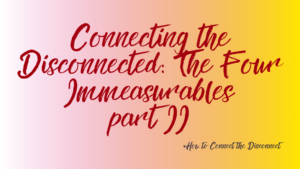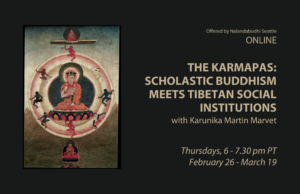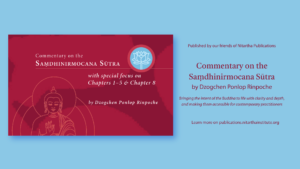The following post, “How Do We Know What Works?” by Mitra Karl Brunnholzl, is part of a series by Nalandabodhi Mitras on Western Buddhism.
When we’re choosing a spiritual practice, a path or even a meditation teacher, what guidance can we rely on — how do we know what works? Even though a friend may be having a great experience with it, how can we know whether it’s right for us? Shouldn’t we be at least as cautious as we are before we buy a pair of jeans or take a class in Japanese? How do we decide if the teachings of the Buddha are going to be a good fit?
The villagers of Kalama in ancient India were in a fix. So many teachers and self-professed wise men wandered through their town espousing religious doctrines and theories of enlightenment that it was all becoming quite confusing.
So the villagers asked the Buddha, “Whom should we rely on? Which teaching should we follow?” Sound at all familiar? In the cacophony of today’s marketplace, who or what do you rely on to make the big and small decisions in your life? Which soap, which politician’s spiel, which view of heaven do you buy?
This was the Buddha’s answer in short: Don’t believe anything you’ve heard or read, just because it comes from the mouth of a famous or respected teacher, just because many other people believe it, or just because it’s written in a holy book. He pointed people right back to their own intelligence, to their own mind. He said, “If you want to know what the truth is, you should question, analyze, and think for yourself, and if you find anything that you deem worthwhile, live up to it.”
I think this is really relevant today. Buddha was probably the only founder of a spiritual tradition who encouraged people over and over again to not just believe him but to really check things out to see what works.







